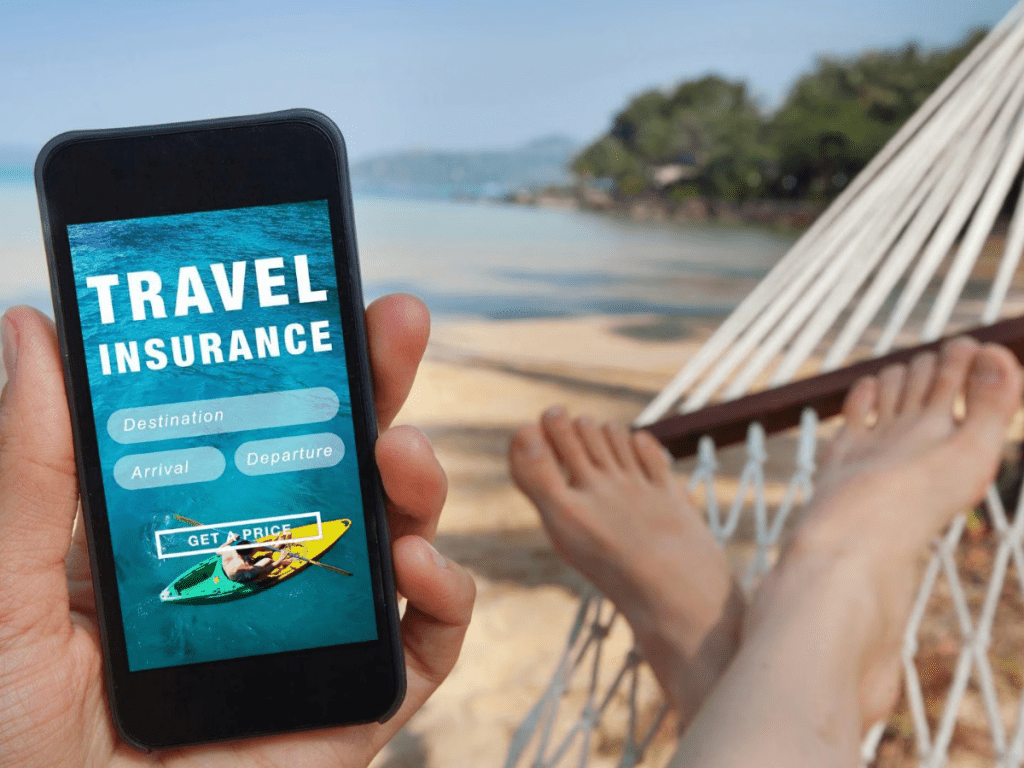introduction
Travel insurance offers valuable financial protection against unexpected events during your trips. However, not all situations are covered, and understanding the scope of coverage is essential to ensure you’re not caught off guard. Here’s a breakdown of what travel insurance typically covers—and what it doesn’t.
What Travel Insurance Covers
- Trip Cancellation or Interruption
Travel insurance often reimburses non-refundable expenses if you need to cancel or cut short your trip due to specific reasons.
Common covered reasons include:
- Illness, injury, or death of you, a travel companion, or a family member.
- Natural disasters making your destination uninhabitable.
- Unexpected job loss or work obligations.
- Jury duty or court subpoenas.
Example: You fall ill before your trip and must cancel. Travel insurance can reimburse your prepaid expenses.
- Medical Emergencies and Evacuation
If you experience a medical emergency while traveling, travel insurance can cover treatment costs and, in severe cases, emergency medical evacuation to the nearest adequate facility.
What’s covered:
- Hospitalization and doctor visits.
- Ambulance services.
- Emergency medical evacuation.
Example: You break a bone while skiing abroad. Insurance can cover medical bills and transport to a specialized hospital.
- Baggage and Personal Belongings
If your luggage is lost, damaged, delayed, or stolen during your trip, travel insurance can help cover the costs.
What’s covered:
- Replacement of essential items during baggage delays.
- Compensation for lost or stolen belongings.
Example: Your checked luggage is delayed by 24 hours. Insurance may reimburse you for buying clothes and toiletries.
- Travel Delays
Delays caused by factors like weather or airline issues can result in additional expenses. Travel insurance can cover meals, accommodations, and transportation during extended delays.
What’s covered:
- Expenses incurred during a delay exceeding a specified number of hours.
- Missed connections due to delays.
Example: A snowstorm cancels your flight, and you need to stay overnight at a hotel. Insurance can cover the cost.
- Accidental Death or Dismemberment
Travel insurance often includes a benefit for accidental death or severe injuries during your trip.
What’s covered:
- Lump-sum payments for loss of life or specific injuries.
- Repatriation of remains in the event of death abroad.
Example: A serious car accident abroad results in a permanent disability. Insurance may provide financial compensation.
What Travel Insurance Doesn’t Cover
- Pre-Existing Medical Conditions
Many policies exclude coverage for pre-existing conditions unless you purchase a waiver or a specific plan.
Example: You have a chronic heart condition and suffer complications while traveling. This may not be covered.
- High-Risk Activities
Adventure sports or extreme activities like skydiving, scuba diving, or mountaineering are often excluded unless you purchase additional coverage.
Example: You get injured while bungee jumping. Standard travel insurance may not cover the medical expenses.
- Civil Unrest or War
Most policies do not cover trip disruptions or injuries caused by acts of war, terrorism, or civil unrest.
Example: Your destination becomes unsafe due to political unrest. This may not qualify for coverage unless specified in the policy.
- Unlisted Reasons for Cancellation
Travel insurance covers trip cancellations for specific reasons outlined in the policy. General fear of travel or changes of mind are not covered.
Example: You decide not to travel due to fear of COVID-19, but no travel bans are in place. Insurance will not reimburse you.
- Non-Emergency Medical Treatment
Routine check-ups or elective procedures are not covered under travel insurance.
Example: You schedule a cosmetic surgery while on vacation. This is not covered.
- Losses Due to Intoxication
Any injuries, accidents, or losses occurring while you are under the influence of drugs or alcohol are typically excluded.
Example: You lose your wallet after drinking heavily. Travel insurance will not reimburse you.
- Unapproved Travel to Restricted Areas
Travel insurance may not cover incidents in regions with active travel advisories or restrictions.
Example: You travel to a country under a government-issued travel ban and require evacuation. This may not be covered.
- Self-Inflicted Injuries or Recklessness
Intentional harm or reckless behavior leading to injury or loss is excluded.
Example: You engage in illegal activities and sustain injuries. Insurance will not cover your medical bills.
Tips to Maximize Your Travel Insurance Benefits
- Read the Policy Thoroughly
Understand the inclusions, exclusions, and coverage limits to avoid surprises. - Purchase Early
Buy travel insurance soon after booking your trip to maximize coverage for unforeseen cancellations. - Consider Upgrades
If engaging in high-risk activities or traveling to regions with known risks, consider specialized policies or add-ons. - Keep Documentation
Maintain records of receipts, medical reports, and police reports for claims processing.
Conclusion
Travel insurance is a valuable tool for protecting your investment and providing peace of mind during your travels. However, it’s crucial to understand what it does and doesn’t cover to avoid unpleasant surprises. By selecting the right policy and reviewing its terms carefully, you can ensure your travels are both enjoyable and secure.

